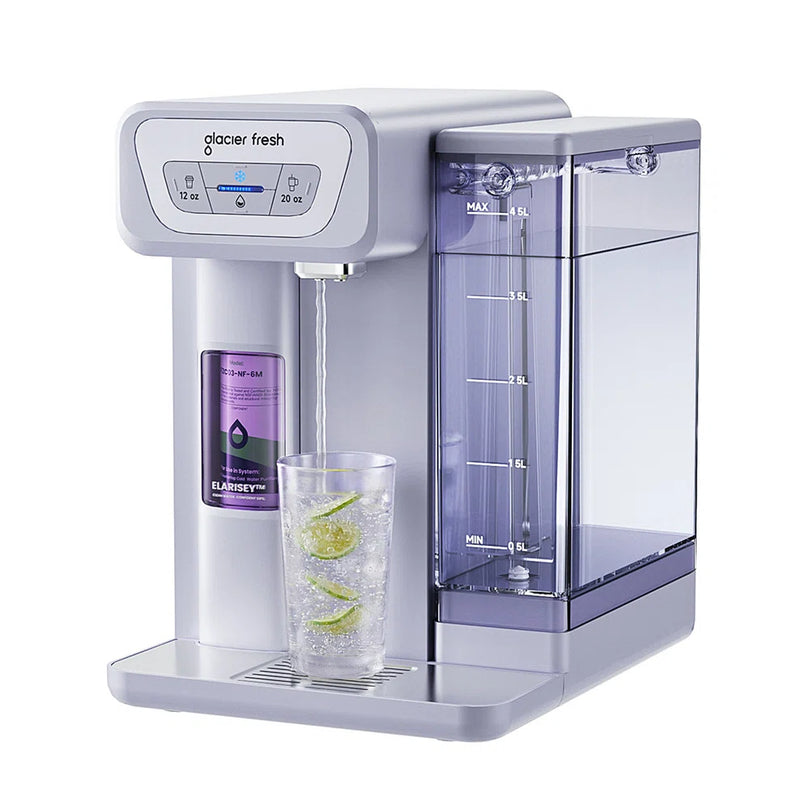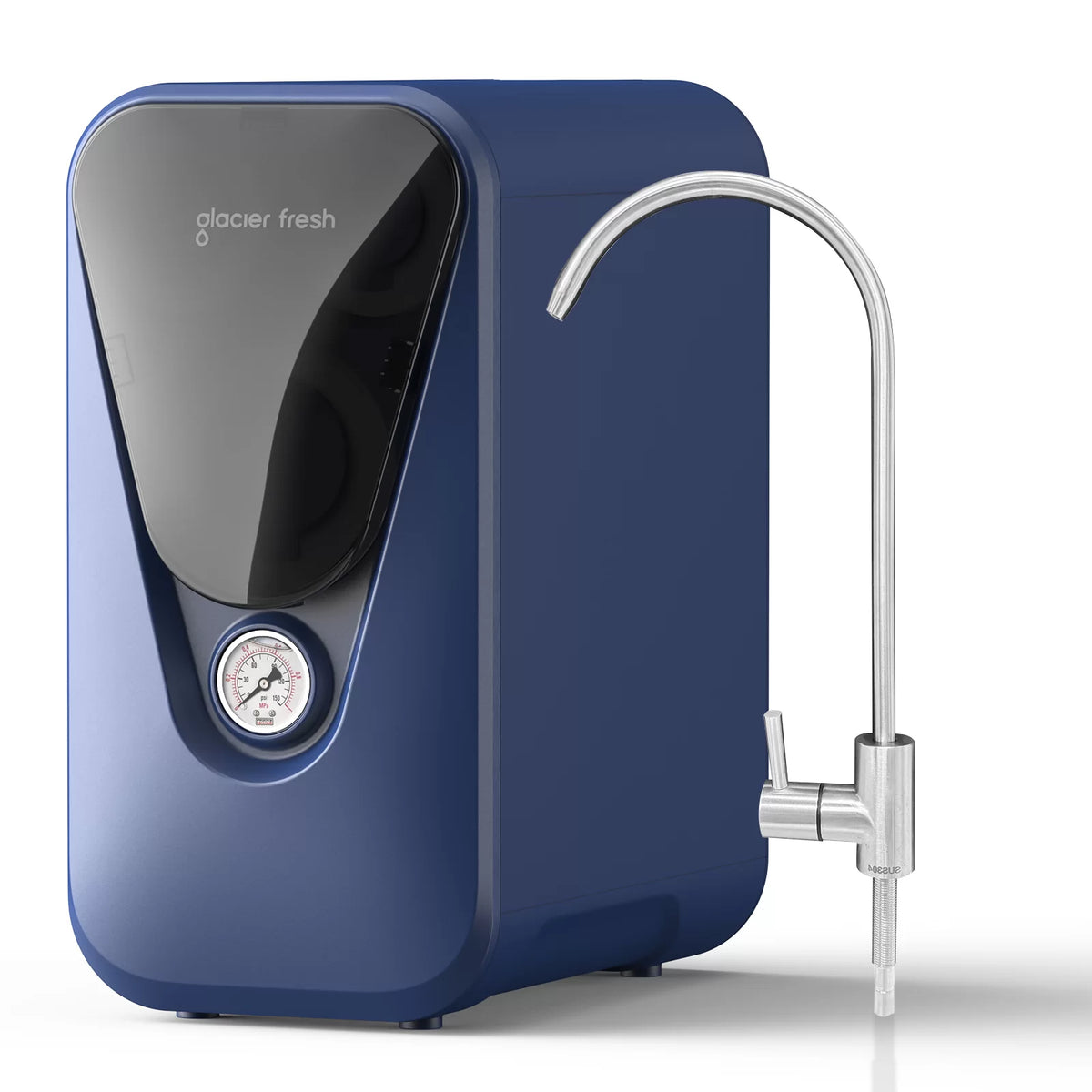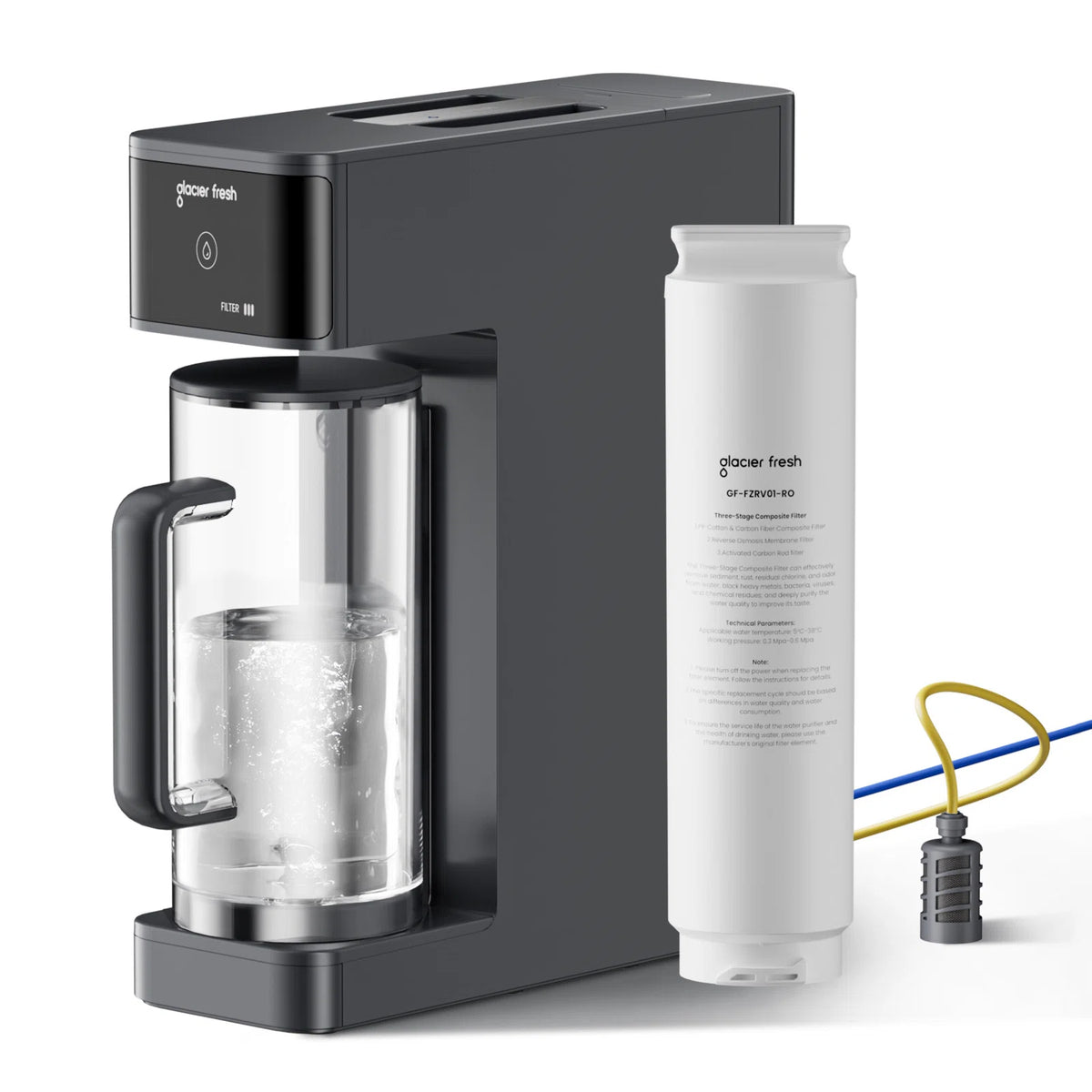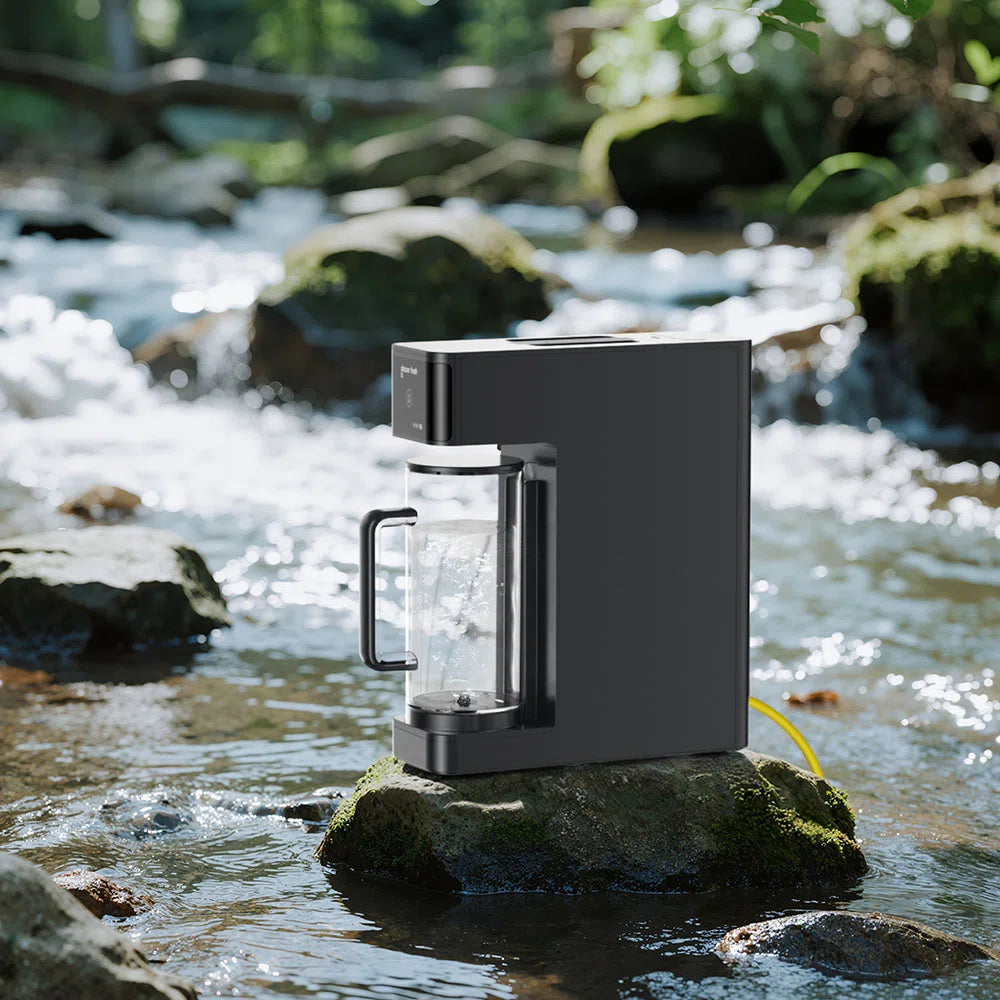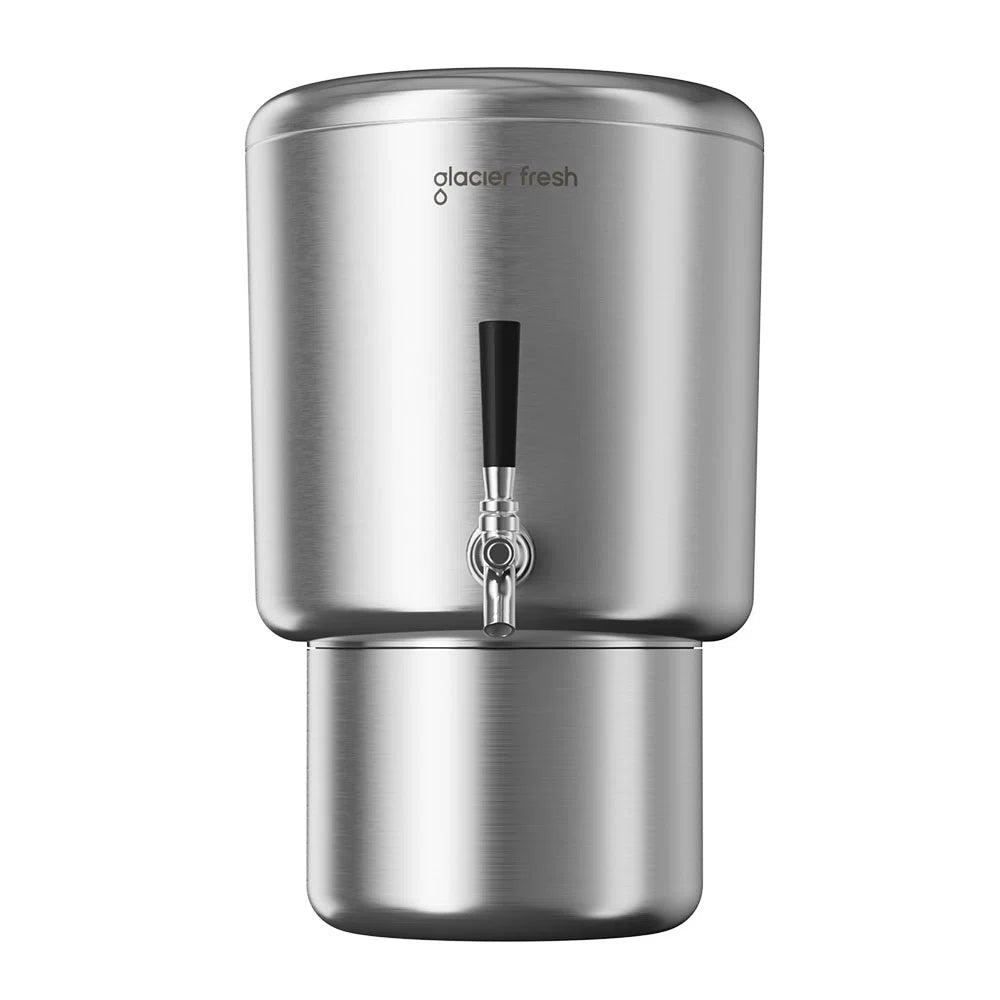Table of Contents:
What is overhydration?
Causes of overhydration
Symptoms and signs of overhydration
Health risks associated with overhydration
Who is prone to the risk of overhydration?
How much water is too much?
Tips to avoid overhydration
Conclusion
Water is essential to our survival. It's the most crucial nutrient for our bodies, facilitating vital functions such as regulating body temperature, promoting digestion, and transporting nutrients. For this reason, staying hydrated is often emphasized, with the standard advice being to drink eight glasses of water daily. But what happens if you take this advice too far? Can drinking too much water be harmful? Let’s dive into the dangers of overhydration and help you understand how to strike a healthy balance.
What is overhydration?

Overhydration, also known as water intoxication or hyponatremia, occurs when the body takes in more water than it can excrete, diluting the concentration of electrolytes in the blood, particularly sodium. Sodium is a crucial electrolyte that helps regulate fluid balance and muscle function. When there’s too much water in the system, it disrupts the body’s natural balance, causing cells to swell. In severe cases, this swelling can lead to brain damage, seizures, and even death.
The body typically maintains fluid balance by excreting excess water through urine. However, overhydration occurs when more water is consumed than the kidneys can eliminate in a given period, often leading to complications. Although rare, it is a serious condition that can be life-threatening if not addressed promptly.
Causes of overhydration
Several factors can contribute to overhydration. Some of the most common causes include:
Excessive water consumption
Many people follow the rule of drinking eight glasses of water a day, but this guideline doesn't apply to everyone. Some individuals might drink far more than their body needs, believing that the more water they consume, the healthier they will be. This is a misguided approach, as it ignores the body's natural regulation mechanisms.
Medical conditions
Certain medical conditions can cause the body to retain water or impair the kidneys' ability to excrete excess fluid. Conditions like kidney disease, liver disease, and heart failure can lead to fluid buildup in the body. Hormonal imbalances, such as those associated with the Syndrome of Inappropriate Antidiuretic Hormone (SIADH), can also lead to water retention.
Endurance sports
Athletes who engage in endurance sports such as marathons, triathlons, or long-distance cycling are at a higher risk of overhydration. These athletes often consume large amounts of water during events to avoid dehydration. However, the body can become overhydrated when water is consumed too quickly without replacing lost electrolytes. This is known as "exercise-associated hyponatremia."
Medications
Certain medications can affect the body’s ability to maintain proper fluid balance, potentially leading to water retention. Diuretics, for example, can disrupt the body's natural fluid regulation, increasing the risk of overhydration when not carefully monitored.
Symptoms and signs of overhydration

Recognizing the signs of overhydration is key to preventing serious health issues. Some symptoms of mild overhydration include:
- Nausea and vomiting: As the body’s fluid balance becomes disrupted, nausea and vomiting can occur. This is often one of the first signs of overhydration.
- Swelling (edema): Water retention causes swelling, particularly in the hands, feet, or face. Swelling can also occur in the brain, leading to more severe symptoms.
- Frequent urination: Excessive water consumption can cause the kidneys to work overtime, leading to frequent trips to the bathroom. However, this doesn’t always indicate that the body is processing water properly.
As overhydration worsens, more serious symptoms may develop, including:
- Confusion or disorientation: Low sodium levels in the blood can affect brain function, leading to confusion, irritability, and disorientation.
- Muscle weakness or cramps: Sodium plays a key role in muscle function. A drop in sodium levels can cause muscle cramps, spasms, and weakness.
- Seizures: In extreme cases, overhydration can lead to seizures as a result of cerebral edema (swelling of the brain).
- Coma and death: If left untreated, overhydration can result in coma and, in severe cases, death.
Health risks associated with overhydration
The primary risk associated with overhydration is hyponatremia, a condition where sodium levels in the blood drop too low. Sodium helps regulate fluid balance in and out of cells, so when the levels fall, water enters the cells, causing them to swell. This swelling can be particularly dangerous in the brain, leading to brain damage, seizures, and death. Beyond hyponatremia, other health risks include:
- Kidney damage: When the kidneys are overloaded with water, their ability to function effectively can be impaired. Over time, this may contribute to kidney disease.
- Electrolyte imbalance: Excessive water intake can dilute other electrolytes in the body, leading to an imbalance that affects various bodily functions, including muscle contractions and nerve signaling.
Who is prone to the risk of overhydration?

While anyone can be at risk for overhydration, certain groups are more vulnerable:
- Athletes and endurance competitors: Those who participate in long-duration physical activities, such as marathon runners, are particularly susceptible to overhydration. They may drink large amounts of water to stay hydrated during prolonged exercise but fail to replenish electrolytes lost through sweat.
- Individuals with medical conditions: People with kidney or liver disease, heart failure, or certain hormonal imbalances are at greater risk for water retention, which can contribute to overhydration.
- People following extreme hydration trends: Some individuals, particularly those in health or fitness communities, may believe drinking excessive water is necessary for optimal health. This mindset can increase the risk of overhydration.
How much water is too much?
To avoid overhydration, it’s important to understand how much water is right for you. While general recommendations suggest eight 8-ounce glasses of water daily (the "8x8" rule), this guideline may not suit everyone. Water needs vary depending on factors such as:
- Activity level: Active individuals require more water to stay hydrated, especially after exercise.
- Climate: Hot or humid environments can increase water loss through sweat, requiring more fluid intake.
- Age and health: Older adults or those with medical conditions may need different hydration guidelines.
The key is to drink when thirsty and to pay attention to your body’s signals. An easy way to monitor hydration is by observing the color of your urine. Light yellow or pale straw-colored urine typically indicates proper hydration, while clear urine may indicate overhydration.
Tips to avoid overhydration

To ensure you stay properly hydrated without overdoing it, consider the following tips:
- Listen to your body: Drink when you're thirsty and avoid excessive amounts of water. Your body has a natural system for regulating hydration.
- Monitor urine color: Aim for light yellow urine, which indicates optimal hydration. Clear urine could suggest you're overhydrating.
- Balance electrolytes: If you're engaging in physical activity, especially in hot climates, replenish lost electrolytes with sports drinks or electrolyte supplements.
- Educate yourself about hydration needs: Understand that hydration needs can vary based on age, health, and activity level. Consult a healthcare professional if you’re unsure how much water you should drink.
Conclusion
Water is vital for health, but too much of it can be harmful like anything. Overhydration can disrupt the body's natural balance, leading to dangerous conditions such as hyponatremia and kidney damage. The key is to stay aware of your hydration needs, drink when thirsty, and avoid excessive water intake. By listening to your body and balancing your fluid intake with proper electrolyte levels, you can stay hydrated without risking your health. Follow Glacier Fresh to find more tip for staying well-hydrated.







